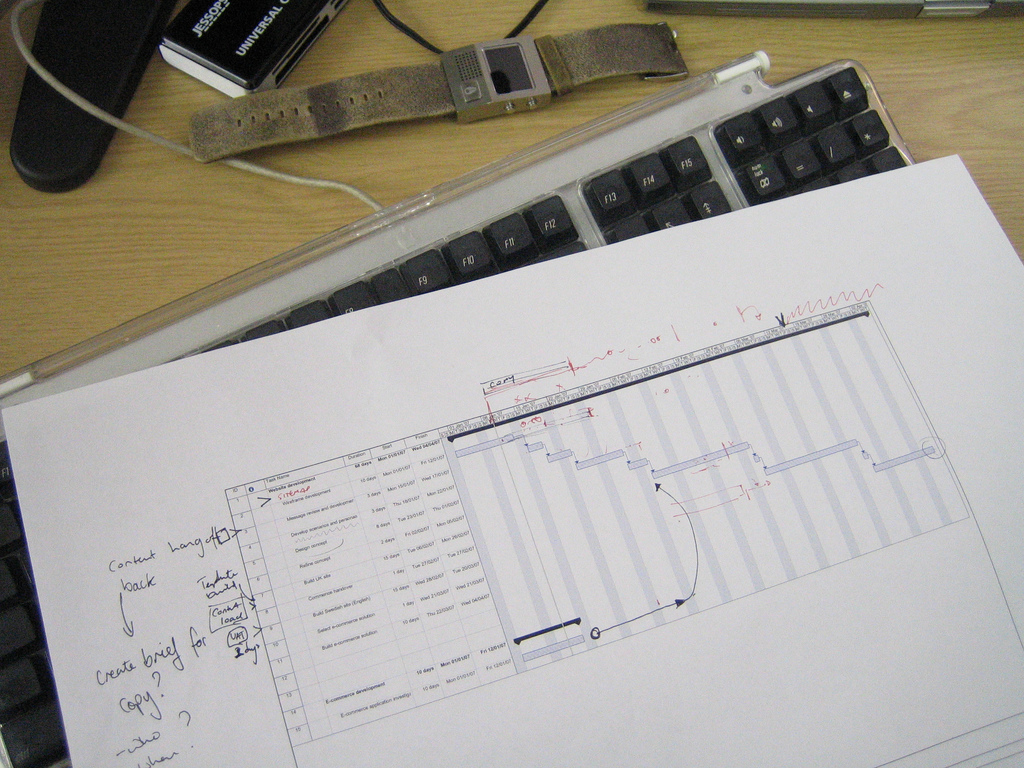Recently, Construction Junkie wrote an article about a research paper that listed the 19 scheduling games that contractors play and it turned out to be one of our more controversial posts, as it was deemed too one sided in the owners favor. To even the score, we’re now examining 10 ways that owners tend to cause problems during construction projects
James G. Zack, the Executive Director for Navigant Construction Forum, has compiled a list of 10 mistakes that owners make that cause disputes based upon his experience as a dispute claims specialist in the construction industry. Navigant research has been a topic of conversation on Construction Junkie a few times before, including the aforementioned scheduling games article, as well as an article about the true cost of rework on a construction project.
Just like with the “scheduling games,” the best way to solve disputes is to build a level of trust and teamwork from the beginning and in this list we see a common theme of doing the exact opposite.
1. Owner Tries to Solve Contractor Problems
Problems arise on every construction project and sometimes owners are quick to offer solutions to a contractor’s problem, as they are mostly concerned with a project completing on time and under budget. When owner’s do this, they set themselves up for a compensation claim or delay claim, because the solution that was directed by them caused the contractor more work. It’s best for the owner to allow the contractor to find the solution or suggest, not direct, possible solutions.
2. Approving Changes Before Time Delays and Cost Are Agreed Upon
Changes to project scope rarely happen at the most opportune time, so an owner may feel pressured to agree to changes prior to determining total cost and delay impact of the change. In this case, the owner will be at risk for whatever the cost and delays may be (within reason). Navigant suggests that owners negotiate this impact before approving of additional or different work to be completed.
3. Failure to Obtain a Daily Record
Once an owner agrees to the terms of a change order, Navigant suggests that the owner request a daily work report of labor, equipment, and materials from the contractor. Having this information allows the owner to determine if any delays were caused.
4. Owner Does Not Understand the Contract
Like the old saying goes, “knowledge is power,” and owner’s representatives knowing what’s in the contract is greatly beneficial to reducing dispute claims. If the owner is not aware of changes or updates to the schedule, they may provide a wrong answer to a contractor’s question and disputes may arise later on.
5. Trying to Change the Project through Contract Interpretations or RFIs
The owner’s goal is to reduce costs as much as possible and the contractor’s goal is to make money. Having said that, any time a change to the project is made that a contractor has a legitimate right to make money on, an owner should honor that. Navigant suggests that some owners try to sneak project changes into a contractor’s scope or cover up errors with the use of RFIs and contract interpretations. This only leads to lack of trust and disputes later on in the project.
6. Refusing to Acknowledge Contractor’s Written Notice
Just as owners request many written acknowledgements from the contractor, the owner should also be willing to accept requests of written notices from a contractor. As Navigant points out, owners sometimes object to a contractor’s attempt to file a notice of cost or time impact on a project. Owners should encourage written notices as it prevents surprise claims towards the end of a project.
7. Requiring Contractors to Finance Project Changes
Since the contractor is typically reimbursed for all costs after work is complete, large change orders on a project can be difficult for some to handle. As opposed to forcing a contractor to finance a large change order, Navigant suggests that the owner work with the contractor to add the change to the schedule of values on the contract, so the contractor can draw from that on a routine basis as they would with the rest of the project.
8. Refusal of Time Extensions
In certain circumstances, changes to a construction project really do cause contractors a delay and an owner that is unwilling to accept that fact sets itself up for delay claims in the future. If an owner does not agree to a time extension in a timely manner, a contractor may take it upon itself to spend more time and money to accelerate the schedule to avoid liquidated damages. The contractor may then file a dispute claiming that the owner owes them more money, because they would not approve additional time that they really needed. Owners should adhere to the terms of the contract and approve any time delays that contractors have a right to claim.
9. Ignoring Indirect Costs of Project Changes
Indirect costs can be very difficult to measure, but it’s very clear that multiple changes to a project greatly diminish a company’s productivity and increase their costs. Owners cannot ignore these indirect costs that a contractor will face and should negotiate with the contractor when a change order is submitted to determine the impact.
10. Not Negotiating Full Cost of Change Orders Up Front
On many projects, contractors will wait until the end of a project to deal with the time delay effects that change orders have caused their projects and owners tend to allow this. To avoid an end of the project dispute over owner-caused delays, the owner should work with the contractor to determine the full and absolute cost of each change at the time of request and each change should include a waiver that would keep a contractor from resurrecting claims at the end. This will avoid any surprises at the end of the project. Navigant recommends that a construction attorney should be consulted to add appropriate waiver language to a contract.
10 Mistakes Owners Make That Cause Disputes | Navigant Construction Forum













